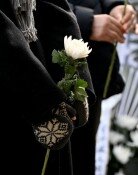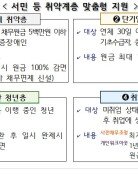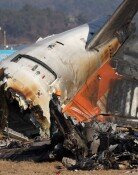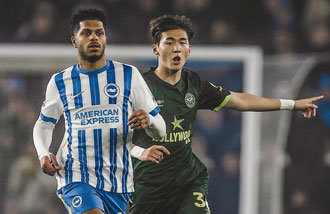[Editorial] The GNP Had Better Face Enraged Public
[Editorial] The GNP Had Better Face Enraged Public
Posted December. 12, 2003 23:33,
It is doubtful whether the Grand National Party (GNP), which is in the middle of a frustrating situation arising from illicit fundraising during the presidential election, is truly the nations leading opposition party or not. The anger of the people has already surpassed the boiling point from looking at breaking news regarding tens of billions in black money; however, no one seems willing to be responsible to them. The partys stance appears to be that every question should be forwarded to its former leader Lee Hoi-chang, while Lee is complaining of the GNPs unreliable reaction.
Chairman of the GNP Choe Byung-yul earlier said, I will disclose everything and cooperate with the prosecutions investigation. However, Rep. Choi Don-woong, who was directly involved in accepting SKs slush funds and raising funds by car delivery from LG Group, keeps delaying his own appearance before the prosecution. Three main officials of the GNPs finance team have disappeared. An exact source on the size of funds has yet to be confirmed. Choe said that the sum would reach approximately 50 billion won, but the public finds it difficult to be satisfied if he is still using the word approximately. It has already been 50 days since the SK Groups slush fund scandal first came to light. This should have been enough time for them to at least grasp the total amount, if only the GNP had an intention of doing so.
Opinions within the party are even more regrettable. They said, We have overcome Ahns scandal and the tax scandal that surpassed an amount of more than 100 billion won, this barrier can also be dealt with through firm unity. But how can they overcome this? Will they move forward with an outside strike while shouting No more suppression of the opposition party as has been done in the past? If the GNP believes that it only needs to wait until the special counsels investigation into presidential key aides, offering retorts against political retaliation and hiding behind the privilege of exemption, it must have almost no knowledge of the enraged public.
In such a messy situation, what is the constitutional amendment for? The ongoing plan is to change the power system to a decentralized presidential system by 2007, but is this a reasonable time to mention a constitutional reform? Veiled enmities over the change from public nominations are also causing disappointing scenes. Choes idea for a shift in the way nominees are handled was attacked by the GNPs former leader, Suh Chung-won, who criticized it as the privatization of the party. Suh, however, was the chairman of the presidential election planning committee. Rather than being interested in public nomination, it would be wise to apologize for the current state of the party and to take responsibility for its problems.
The GNP will have to be strongly determined to make a thorough change if it doesnt want to risk its very existence. In order to do that, it must face up to the infuriated public.






